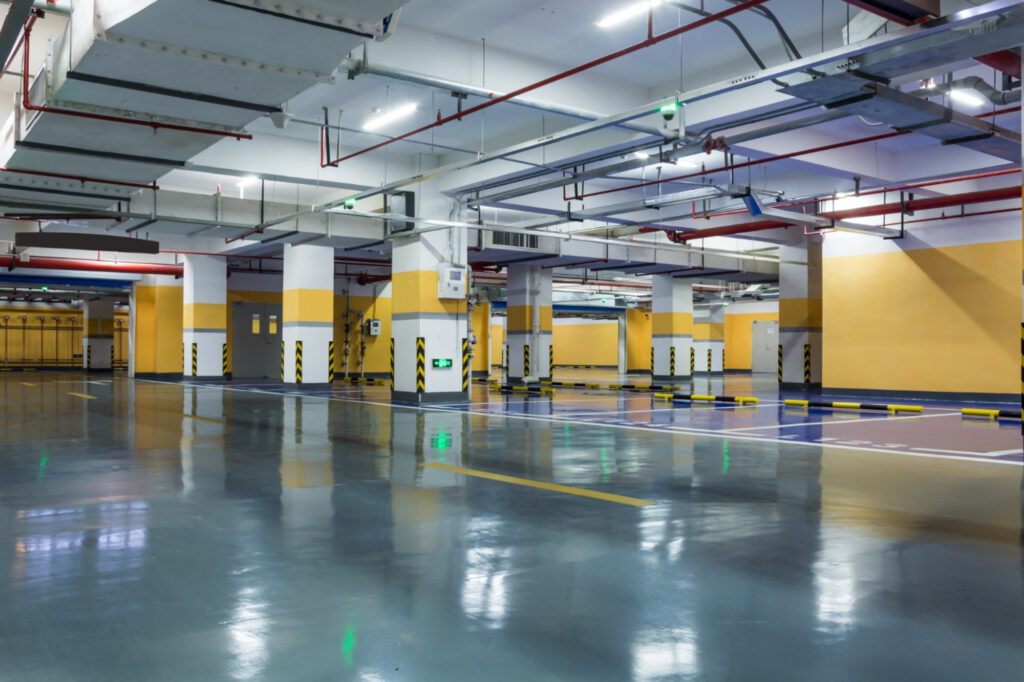
Industrial Floor Caulking
Advanced Protection for Your Building

Our Caulking Experts Have You Covered
Industrial floor caulking can be used to seal gaps and cracks throughout your building, preventing water from leaking in or heated or cooled air from escaping.
At Desco Floor Systems, we prevent water damage and reduce the costs of heating and cooling by sealing openings within your building. Our industrial floor caulking services eliminate drafts and leaks with resistant, cutting-edge caulk that lasts.
Subservices of Caulking

The Benefits of Caulking
-
1
Keep Weather Outdoors
By caulking your floors, we keep water and air from intruding into your facility, preventing mold and abnormally expensive utility bills.
-
2
Shut Out Pests
We stop pests such as mice from creeping in through the gaps and cracks of your flooring by filling those spots with our advanced, durable caulk.
-
3
Enhance the Aesthetics
Caulk improves the look of the room by making transitions within the room appear more cohesive. Our caulk comes in various colors and can also be painted.

Durability Never Looked So Good
See the projects that have our clients raving, and learn what to expect when you work with our experts.

Let’s Get Started
Tell us what you’re looking for, and we’ll help design the right surface for your organization.

70+ years in the industry
About Us
Our team is experienced in carefully caulking to help your building stand the test of time. We’re driven to help you reduce the costs of heating and cooling while preventing outside elements from seeping into your building and causing damage.
Frequently Asked Questions
A variety of factors can determine which type of sealant is best for you:
- Bond Strength
Depending on the surfaces you’re wanting to seal, bond strength can be an important factor. The bond strength is how well the sealant will bind to the surface that it is treating.
For example, sealants will adhere to a material such as concrete differently than metal. The bond strength of your sealant will vary with the chemical composition, the permeability and surface finish of the substrate, curing method, and other factors. For certain hard-to-bond surfaces, you may need a primer to ensure that your sealant sticks.
- Temperature
Various temperatures can affect the performance of sealants. If your business uses extreme temperatures, then you may require a sealant with a wider temperature range. Understand the range of temperatures that your application may encounter to ensure satisfactory sealant performance through its lifespan.
- Chemical and Weather Resistance
Environmental factors such as UV radiation, weather, and pollutants can hurt sealants and cause them to become cracked and brittle over time. Some sealants are more resistant to certain conditions than others.
- Flammability
Fireproof sealants ensure safety from fire hazards within your facility.
- Electrical Properties
The electrical insulation values of sealants can vary depending on their chemical composition.
Contact our team for help discovering which type of sealant is right for your building.
We offer industrial floor caulking solutions that can be painted to match or accent the color of your structure.
We offer waterproof formulations of caulk that stay in position while adhering to the surface.
Caulking seals openings whereas joint fillers fill cracks and gaps, providing structural support. Because of this, the caulk is more flexible and lightweight while the joint filler is more rigid and heavier.


